Founders Jocelyn and Michael Lightfoot began their journey in winegrowing in 2009 in the Annapolis Valley. Opimian is proud to introduce them to our Members across Canada! Read our Q&A to learn more about Jocelyn and Michael.
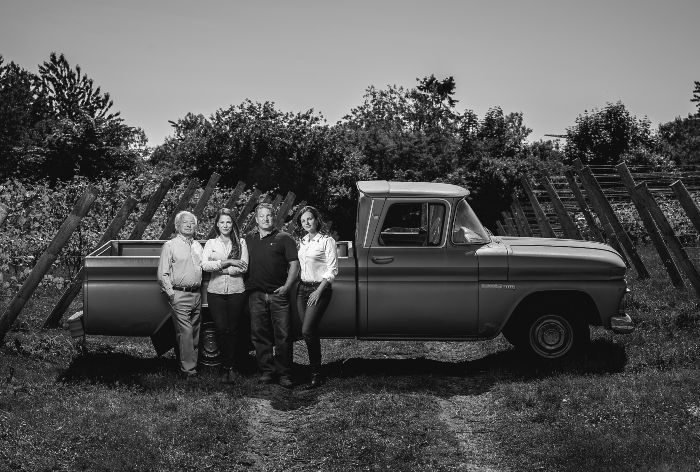
What is the origin story of Lightfoot and Wolfville? What is the meaning behind the name?
The name of the winery – “Lightfoot & Wolfville” – represents the connection of people and place (Lightfoot is our family surname and Wolfville being the name of the town), a relationship that is at the heart of everything we do. While our journey in wine growing first began in 2009 with the initial planting of grapevines, our family’s farming roots go back eight generations in the Annapolis Valley; four generations on our current home farm land where the winery sits today.
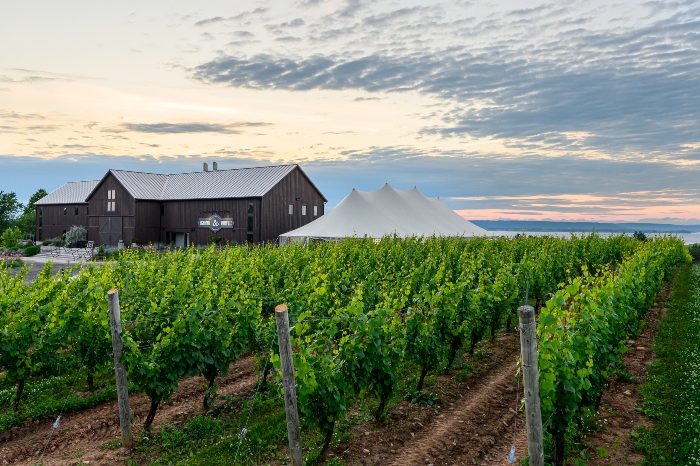
Co-owner, Michael Lightfoot, has been involved in Nova Scotia’s commercial poultry industry for over 30 years through D&M Lightfoot Farms, parent company to Lightfoot & Wolfville Vineyards. Today, D&M Lightfoot Farms stewards a total of 300 acres of land in the Annapolis Valley and farms supply-managed breeder and broiler poultry as a shareholder of Eden Valley Farms and Atlantic Poultry Inc. Michael’s partner and co-founder, Jocelyn Lightfoot, is a certified sommelier with a background in the travel and tourism industry. Together, they were inspired to contribute to the burgeoning food and wine culture of the Annapolis Valley, believing in agritourism as important ways to help build the economy of rural Nova Scotia. Following an extensive soil and climate study in consultation with internationally renowned wine consultant Peter Gamble, our home farm was identified as prime viticulture land given the close proximity to the Minas Basin, which moderates our growing environment. Starting in 2009, we began diversifying the farm by planting grapevines for wine production. In 2012, after exhausting suitable land for viticulture on our Wolfville location, we purchased an additional property in Avonport to expand our vineyard acreage. Today, between the two sites we manage nearly 40 acres of estate-owned vineyard and work with a few like-minded local grape growing partners. Our first wine products were launched under the Lightfoot & Wolfville brand in 2015 to great critical acclaim. The Lightfoot & Wolfville hospitality facility, opened in 2017, features a wine shop, tasting room, restaurant and full-service event venue where we serve our wines alongside local, in-season ingredients, connecting guests with the unique terroir of Nova Scotia.
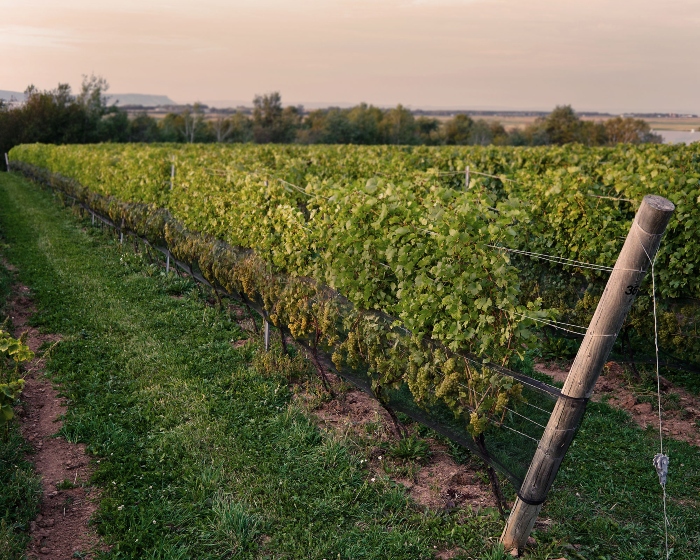
What makes the Annapolis Valley a great wine region?
The Annapolis Valley is a long, relatively narrow valley located on the western edge of Nova Scotia, situated between two parallel mountain ranges, along the shores of the Bay of Fundy. Close proximity to the Bay of Fundy and the world’s highest tides creates an incredibly unique growing environment with tremendous potential for the production of distinctive cool-climate wines. Our 38 acres of estate vines are planted on two distinct sites along the shores of the Minas Basin, an inlet of the Bay of Fundy, where hilly slopes extend the frost free period and provide excellent exposure. Natural airflow and incessant saltwater breezes off the basin provide an important moderating effect, especially critical during the winter months when temperatures dip below freezing.
Throughout the growing season, these same cool breezes slow ripening, extending the hang times of our fruit. This microclimate creates balanced, full-flavored grapes that tend to have relatively low sugar content, yet full phenolic maturity and beautifully retained natural acidities. The ultimate result is wines that are firmly rooted in a distinct sense of place, characterized by vibrancy, freshness, finesse, and a brilliance and clarity of flavor that can only be achieved in very cool climate regions.
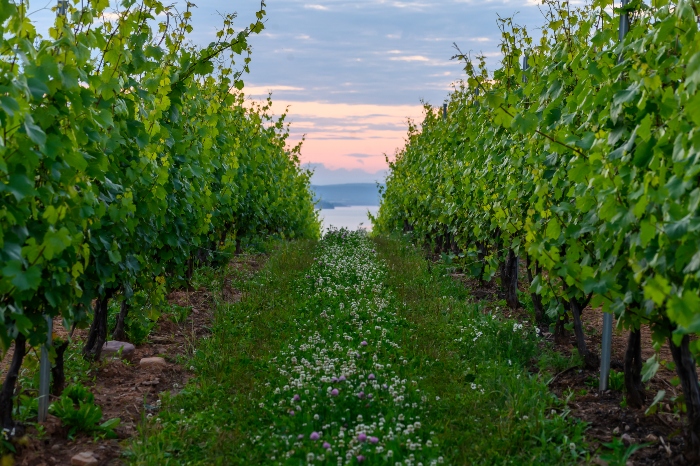
What vinification techniques do you use? Are there any winemaking traditions that you wish to preserve?
Throughout our processes, we constantly strive to strike a balance between respect for tradition and pushing innovation. We identify as winegrowers rather than winemakers and see the vinification process as an extension of our work in the vineyard where our aim is to produce the highest quality fruit possible, allowing for minimal intervention in the cellar.
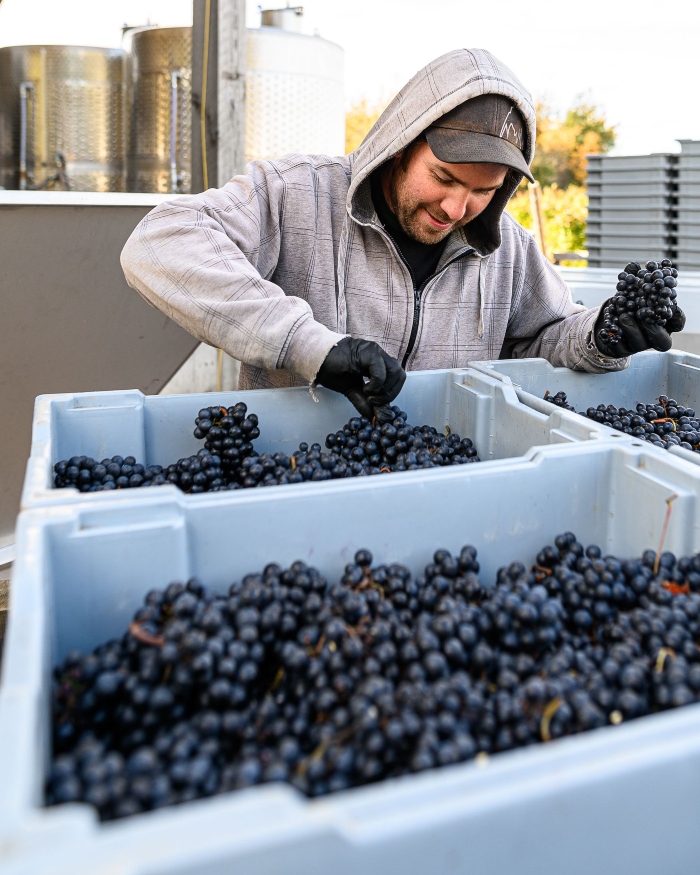
We use a variety of fermentation vessels, focusing mostly on stainless steel and low impact oak. For our aromatic whites such as Tidal Bay, we typically use cool fermentation in stainless steel to preserve aromatic purity and primary fruit character. For our Chardonnay and Pinot Noir, we employ a fairly classic Burgundian vinification with mostly used (neutral) French oak barriques, minimizing bold new oak to keep flavors balanced and to not overshadow terroir. In 2020 we were fortunate to acquire a 2400L Stockinger foudre for our Riesling program, allowing us to produce a drier style of Riesling (released as the “Ancienne Riesling”) with layers of depth and texture and a full malolactic fermentation. Stockinger is a small, family run cooperage based in Austria that is one of the oldest, if not the oldest, cooperages in the world that is renowned for ultra high quality / low impact wood that fully respects the fruit and allows wines to mature gracefully with minimal impact on aromatics or flavours.
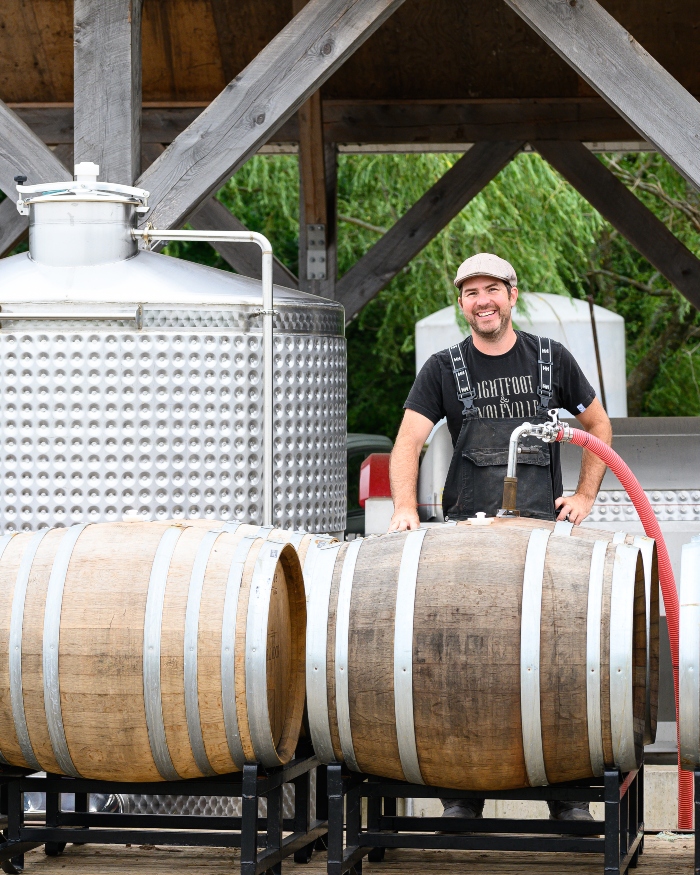
What is your approach to sustainability?
As multi-generational farmers, it is of utmost importance to us to leave our land to future generations in a healthier state, our soils enriched and free from chemicals. We believe that living soils grow healthy, balanced vines which bear better quality fruit, and ultimately produce wines that convey the purest spirit of place. Our commitment to sustainable agriculture practices has led us to successfully pursue organic certification through Ecocert Canada and Biodynamic certification by Demeter Canada. We are proud to be Nova Scotia’s first biodynamic winery and currently one of just five wineries in all of Canada to carry the stringent Demeter certification.
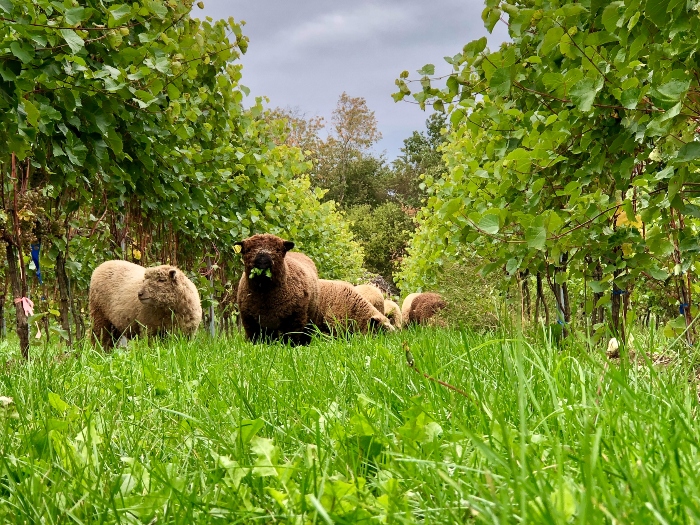
Which wine(s) are you most proud of? What is your favourite grape variety to work with?
We are proud of our entire portfolio but our sparkling wines specifically have helped to put Nova Scotia on the world wine map as a serious wine-producing region with world-class quality, as evidenced by critical acclaim, awards and representation in international markets such as the UK, Bermuda, Turks & Caicos and Japan.
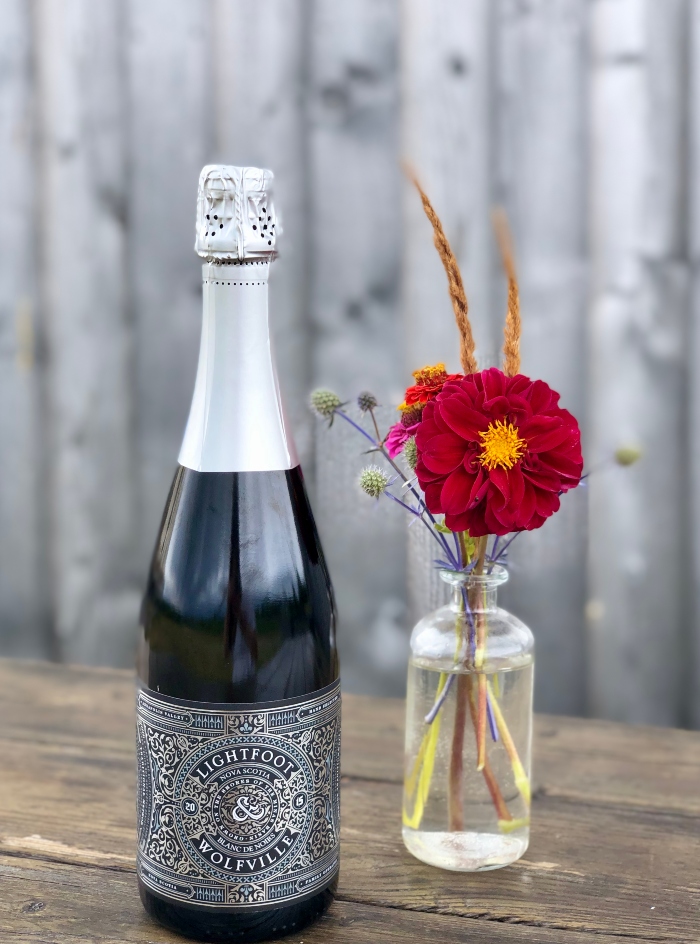
What wine would you drink every day if you could?
Sparkling wine, for every day should be celebrated!

How do you see the future of winemaking in Nova Scotia and in Canada?
Overall, we predict a narrowing of our focus as a region. As we look to the future, climate change is top of mind; understanding the impacts – the benefits and the threats – on a cool climate on the fringe such as ours.
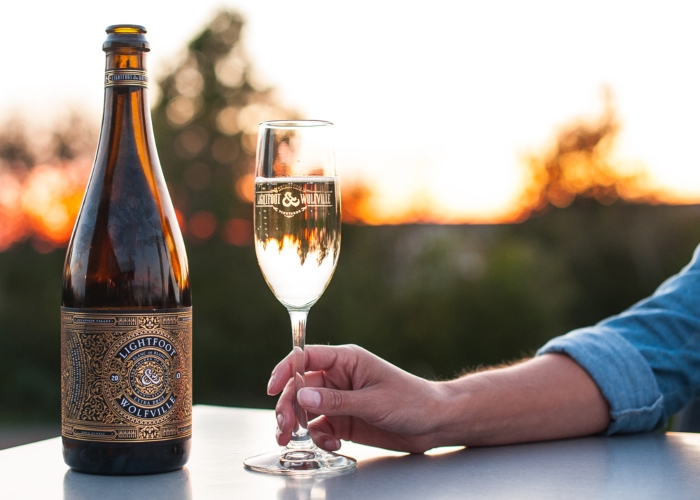
Jocelyn and Michael Lightfoot

